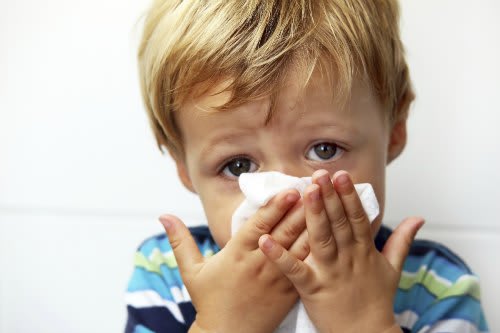Most Common Flu Shot Questions, Answered.
Published: October 13, 2021l
By Maria A. DiGiovanni, MD, Internal Medicine, Stamford Health Medical Group and Michael F. Parry, MD, Chair of Infectious Diseases
The first question you're asking yourself is probably, “Do I really need to get a flu shot?” While the choice is yours and yours alone, there are a few facts you may want to consider if you're apprehensive or on-the-fence about the vaccine.
Circulating influenza viruses change from season to season which is why a new flu vaccine comes out each year. Experts at the World Health Organization select specific viruses for the vaccine based on the most recent strains of the flu.
Let's fight the flu and stay healthy!
The first question you're asking yourself is probably, “Do I really need to get a flu shot?” While the choice is yours and yours alone, there are a few facts you may want to consider if you're apprehensive or on-the-fence about the vaccine.
Q: How serious is the flu? Is it just like a really bad cold?
A: In simple terms, when you have the flu, you feel a lot worse than when you have the common cold. Symptoms can definitely vary by age, but the basics are:- Fever with chills
- Sore throat
- Muscle aches
- Fatigue
- Cough
- Headache
- Runny or stuffy nose
Q: How do I know if I have the flu or COVID-19?
A: Both viruses share many symptoms, so the answer isn't always clear. But the ways you can stay safe and healthy are very similar. Read this blog for more ways to protect yourself against COVID-19 and the flu.Q: What complications can having the flu cause?
A: In more serious cases, the flu can lead to pneumonia and blood infections, and can bring about diarrhea and seizures in children. Heart and lung complications may also arise from the flu. Every year, thousands of Americans die from the flu and even more are hospitalized.Q: But… can't the shot actually cause the flu?
A: No! This is a common misconception. There's no live flu virus in the flu shot. In fact, there are many influenza viruses and they're constantly changing. That's why, every year, a new vaccine is created to help protect against the 3-4 strains that are most likely to cause the disease. The vaccine still provides substantial protection even if it doesn't exactly match the strains.Q: Last year, I got sick from the shot. Why?
A: You may get sick, but it's not from the shot. It's important to understand that the flu vaccine targets specific strains of influenza, and it is inactive. There are many other viruses and bacteria that can make you sick with symptoms like the flu.Q: Tell me why I should get this vaccine again. Do I really need it every year?
A: The flu vaccine can keep you from getting the flu, make you less sick if you do get the flu and keep you from spreading the flu to others... which everyone appreciates!Circulating influenza viruses change from season to season which is why a new flu vaccine comes out each year. Experts at the World Health Organization select specific viruses for the vaccine based on the most recent strains of the flu.
Q: Is there anyone who shouldn't get the flu vaccine?
A: Almost everyone can get flu vaccine. Here are some considerations and exceptions:- If you're highly allergic to eggs should receive the egg-free product.
- If you have a history of (1) documented anaphylactic shock after a previous flu vaccine or, (2) Guillain-Barre syndrome (a type of paralysis) within six weeks of receiving a flu vaccine.
- If you're sick with a fever, wait until you are better to get vaccinated.
Q: Where can I find out more about the flu and flu vaccine?
The CDC is a great resource. Start here.Let's fight the flu and stay healthy!





























